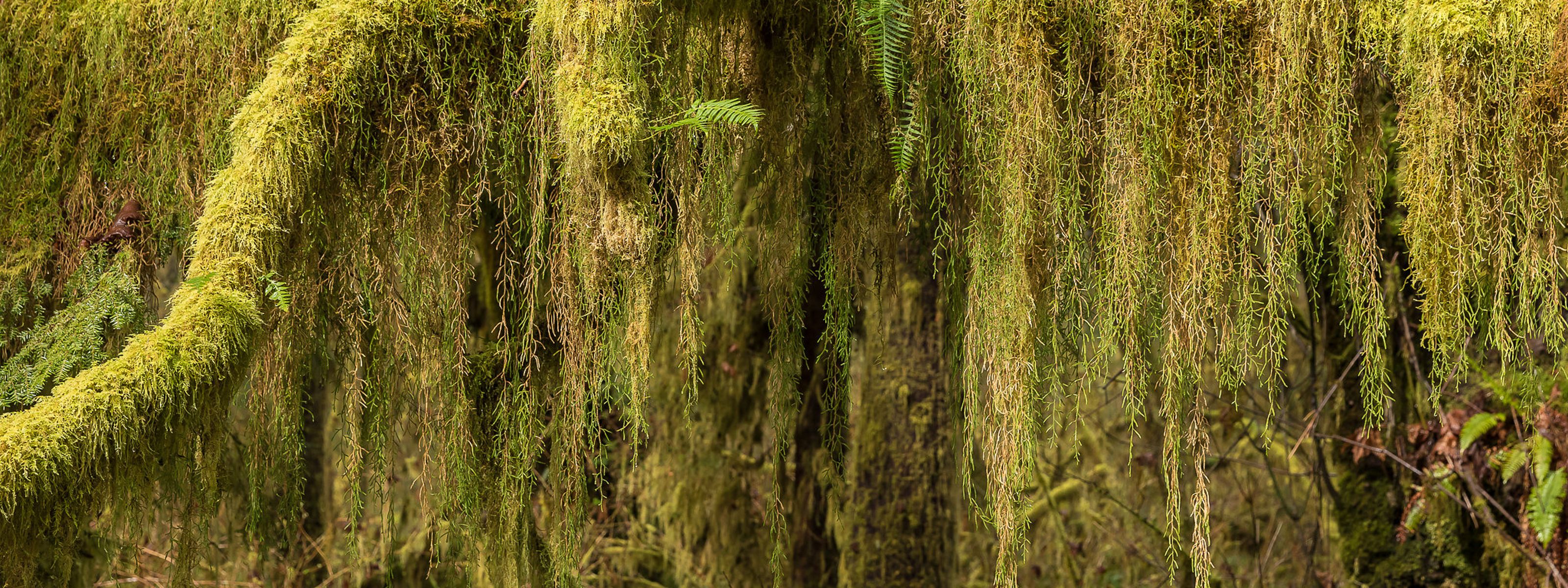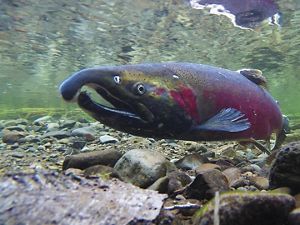Born and raised on the Colville Reservation, Cody Desautel spent his childhood surrounded by a community that taught him how to understand and honor nature's rhythm. From a young age, he was taught that Washington State’s forests are not just a natural resource but also a source of cultural heritage and history. Like trees intertwining their roots to form a thriving forest, Cody's life path has been guided and anchored by his community and a love of the outdoors.

Today, Cody is a tribal leader, land steward, and forestry professional for the Confederated Tribes of the Colville Reservation. Located in north central Washington, this preserve is the home of descendants from a dozen Indigenous tribes spanning from Oregon to Canada.
“The Colville community is so tight that I had five sets of parents,” he said. “The phrase ‘it takes a village’ is very true for our culture. Our Tribe considers our family to include more than immediate blood relatives. My family—the people I grew up with—is kind and sharing, and no one looks to get more than what anyone else has. It’s a different, non-materialistic way of life and an influence I still try to follow today.”
Growing up, Cody spent most of his days exploring the woods, inspiring him to tell his fifth-grade teacher he wanted to become a biologist. After graduating from Inchelium High School in 1995, he pursued a bachelor’s degree in environmental science and a master’s degree in Indian Law. He became executive director of The Confederated Tribes of the Colville Reservation in 2022, a role in which he is responsible for more than 1,500 people in the Colville Tribal Government with more than $150 million in annual budgets. Prior to that, he spent nine years as the natural resource division director for the Tribe.
Although his executive director duties include all aspects of Tribal government operations, he is primarily focused on forest and fire management, conducting prescribed or controlled burns to increase the environment’s resilience to high-intensity fires, which are becoming more frequent and dangerous due to climate change and the elimination of low-intensity fires. As a trustee of The Nature Conservancy in Washington, he brings decades of experience in fire management and knowledge of the land to actively contribute to expanding the scope of prescribed burns in Washington.
“Most people don’t know about the history of the land in Washington State because Tribal people were moved to places that settlers didn’t want,” Cody said. “Now that people in cities see wildfire smoke, there is more desire to act. We are going into a ‘fire debt’ that we continue to accrue, but Mother Nature will come to collect. Tribes are becoming a stronger voice that can influence positive change.”
Over two decades, Cody’s roles within the Colville Reservation were diverse and far-reaching, ranging from forest management, fire suppression and fuels management to preserving cultural resources. He also took charge of the Tribe's expansive 450,000-acre carbon project and was pivotal in reintroducing crucial fish and wildlife species.
Cody joined The Nature Conservancy’s Board of Trustees in 2022, bringing a unique perspective about how to weave ancient Tribal land management practices into modern-day policies.
“The Nature Conservancy and the Tribal Council have similar agendas,” Cody said, noting that he is proud to be part of TNC's effort to honor the diverse demographics of Washington State. “There is a lot of alignment with what we care about: that the climate, environment and social health are interrelated. We need a healthy and functioning environment to have a thriving livelihood seven generations into the future. Tribes are getting more authority than they did in the past, which is important because we know how to use resources in a way that can benefit the world as we deal with climate change.”
Beyond his current duties, Cody is also a respected contributor to several other organizations. He currently holds the esteemed position of president for the Intertribal Timber Council, where he advocates for Tribal interests and promotes sustainable forestry practices. He also contributes to various advisory committees, including the Washington State Forest Practice Board, the Wildland Fire Advisory Committee and the Forest Health Advisory Committee. In 2022, he was appointed to the federal Wildland Fire Mitigation and Management Commission.
Cody is motivated by what he describes as “an obligation” to share the knowledge of his ancestors, and he comes from a family rich in environmental activism. Before he became a public servant, Cody’s great-grandmother traveled to Washington, D.C., to fight for her people’s rights. In the 2010s, Cody joined his uncle in opposing injustices against the Colville Tribes. Cody played a critical role in holding the Canadian government accountable for rights stolen from the Colville Tribes, which the government incorrectly declared extinct in British Columbia in 1956. He served as a witness and tribal expert at trial in a case that was ultimately upheld by the Canadian Supreme Court and contributed to the court’s decision in 2021 to reestablish the rights of his people to hunt on their native lands in Canada.
“Creating a sense of belonging is important,” he said. “The Tribal perspective is that we don't inherit things; we borrow them and give them to the future. Our responsibility is not to lose ground on our watch. We need to take action for the future, seven generations from now.”
Cody imparts his passion and dedication to land stewardship to the community and spreads knowledge about sustainable land practices to preserve and improve the environmental health of his community and the Northwest region. He practices these values in his personal life as well. Cody is an avid outdoorsman, taking every opportunity to spend time hunting and fishing. He practices awareness of the environment in his everyday life and imparts those teachings to his children. Cody's dedication and leadership inspire The Nature Conservancy in Washington.
We Can’t Save Nature Without You
Sign up to receive monthly conservation news and updates from Washington. Get a preview of Washington's Nature News email.




